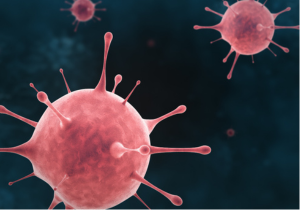-
3rd floor, HQ CityWalk, Vijay Nagar, Indore, M.P. 452010
Blood Cancer: Illuminating Hope in the Face of Adversity

Blood Cancer: Illuminating Hope in the Face of Adversity Blood cancer, also known as hematologic cancer, encompasses various types of malignancies that affect the blood,
Blood cancer, also known as hematologic cancer, encompasses various types of malignancies that affect the blood, bone marrow, and lymphatic system. In this blog, we aim to shed light on blood cancer, including its types, causes, symptoms, diagnosis, treatment options, and the importance of support and hope in the battle against this challenging disease.
Types and Causes:
Blood cancer includes leukemia, lymphoma, and myeloma, each with its unique characteristics. The exact causes of blood cancer remain unknown, but certain factors such as genetic mutations, exposure to radiation or certain chemicals, compromised immune system, family history, and certain genetic disorders may increase the risk of developing the disease.
Symptoms and Diagnosis:
Symptoms of blood cancer can vary depending on the specific type and stage of the disease but may include unexplained weight loss, fatigue, frequent infections, swollen lymph nodes, excessive bleeding or bruising, bone pain, and night sweats. Diagnosing blood cancer involves a series of tests, including blood tests, bone marrow biopsy, imaging scans, and genetic tests, to confirm the presence of cancer cells and determine the specific type and stage of the disease.
Treatment Options:
Treatment for blood cancer depends on the type, stage, and other individual factors. Common treatment options include chemotherapy, radiation therapy, immunotherapy, targeted therapy, and stem cell transplantation. The treatment plan is personalized for each patient, aiming to eliminate or control cancer cells, improve symptoms, and prolong survival.
Support and Hope:
Receiving a blood cancer diagnosis can be overwhelming, but support and hope are crucial in the journey towards healing. Joining support groups, seeking counseling services, and connecting with organizations specializing in blood cancer can provide emotional support, education, and valuable resources. Patients, their families, and caregivers should remember that they are not alone in this battle and that there are numerous support systems available to help navigate the challenges they may face.
Research and Advances:
Ongoing research plays a pivotal role in improving outcomes for individuals with blood cancer. Scientists and medical professionals are continually striving to discover new treatments, develop targeted therapies, and enhance early detection methods. Clinical trials offer opportunities for patients to access innovative treatments and contribute to the advancement of blood cancer care.
Spreading Awareness:
Raising awareness about blood cancer is crucial in promoting early detection, improving access to treatment, and supporting research efforts. By educating the public about the signs and symptoms of blood cancer, advocating for regular health check-ups, and supporting fundraising initiatives, we can unite in the fight against this disease and bring hope to those affected.





